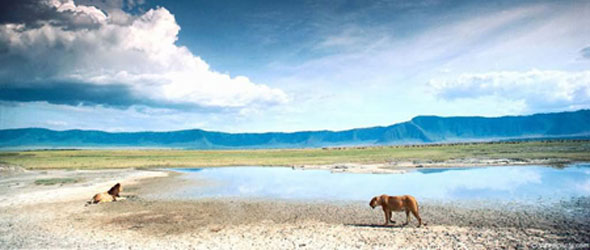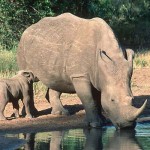Johannesburg – Despite the current global financial problems which continue to impact the industry, tourism will continue to play a central role in the country’s economy, Tourism Deputy Minister Tokozile Xasa says.
With South Africa continuing to emerge as an important global player, government now wants a new focus in the tourism sector to exploit the virtually unlimited opportunities presented by the concept of ‘responsible tourism’ that has been adopted by several countries in the world.
“Despite the recession in the world, we have seen that there are emerging markets that are being opened to us and we were helped by our exposure through the soccer world cup. We were exposed to countries that were never thought of as markets,” Xasa told BuaNews on Saturday on her return from the International Responsible Tourism Conference held in London.
The first International Conference on Responsible Tourism in Destinations took place in Cape Town in August 2002 as a side event of the Johannesburg World Summit on Sustainable Development.
According to a declaration adopted at that summit, responsible tourism was defined as an approach to the management of tourism, aimed at maximising economic, social and environmental benefits and minimising costs to destinations. Its focus was on creating “better places for people to live in, and better places to visit”.
Xasa said as one of the leaders in responsible tourism, South Africa was starting to attract massive amounts of tourists from many emerging markets, particularly from Africa and Asia.
“We continue to grow in these regions and as such there’s a special focus now on growing and developing that market. We are opening offices on these continents,” she said.
According to an examination by the department, South Africa’s core markets in Europe and North America remained the major source of long-haul tourists. The country’s overall tourism growth in 2011 was largely due to a 14.6% growth in the emerging markets of Asia, driven by a growth of 24.3% from China and 26.2% from India.
Tourism was contributing about 8% (R189 billion) to South Africa’s Gross Domestic Product.
“So the Responsible Tourism Conference for us served as a platform to further convince those markets that South Africa’s position as a leisure destination remains firm and unshaken,” Xasa said.
She said what emerged from the conference was that most country’s failed to “sell” their culture to tourists, adding that besides safaris and beautiful infrastructure, there was more to tourism.
“The whole world is so keen on learning about cultures. In South Africa we have this rich cultural diversity …we have a host of products to develop within that range that would then add onto the products that South Africa had been providing.”
The plan was to extend the periods tourists usually spend on South Africa’s shores.
Xasa said the youth employment problem in South Africa, aggravated by the global financial crisis, had created a renewed sense of urgency for action and she suggested that developing opportunities in tourism could be one of the solutions.
She invited the private sector to invest in initiatives aimed at stimulating domestic tourism.
“What the national government is doing, having identified tourism, there are opportunities embedded into the overall government infrastructure development because the infrastructure you see even during the world cup – the private sector was hugely involved there. So we are saying they must do the same with tourism, they must suggest ideas to us, There is a lot of untapped potential in our communities.”
Highlighting the key milestones of the London conference, Xasa said South Africa emerged as one of the top countries in the world having succeeded in practicing responsible tourism, adding that perceptions were in future likely to be swayed towards the country’s favour.
“The world is starting to realise that responsible tourism is the way as it focuses on sustainable development and it is people orientated. People are looking for authentic experiences when they travel and that is what South Africa presents and we based our case on practical examples.”
Xasa stressed the importance of responsible tourism in ensuring that South Africa becomes one of the top 20 travel destinations in the world and to achieve this, she said, the industry should shift from focusing only numbers and spend.
She suggested that there should be a more “rigorous” focus on sustainability.
“The strategy on responsible tourism will focus on saying ‘yes we have our economy growing but in terms of jobs we are shrinking’, how we can ensure that we have sectors that would ensure that while contributing to the GDP, we are creating jobs.
“Tourism is one of the six sectors that have been identified as part of the new growth path and we identified areas within tourism with a special focus on domestic tourism ahead of everything else so we think by 2020 we should be in a position to have created about 225 000 sustainable jobs within that period,” added Xasa.
The National Tourism Sector Strategy (NTSS 2011), a blueprint for the tourism sector in South Africa, was an outcome of broad industry consultation. The NTSS sets a new vision and growth trajectory for the future.
The NTSS vision is to make South Africa one of the top 20 destinations by 2020, while it also commits the tourism sector to creating a total 225 000 jobs in 2020. The strategy also seeks to increase tourism’s contribution to the economy from R189.4 billion ( in 2009) to R318.16 billion in 2015 and R499 billion by 2020.
The NTSS, however, recognises that these ambitious growth targets should be achieved in a responsible and sustainable manner, mindful of the fact that South Africa’s natural environment is one of its greatest tourism resources. – BuaNews








